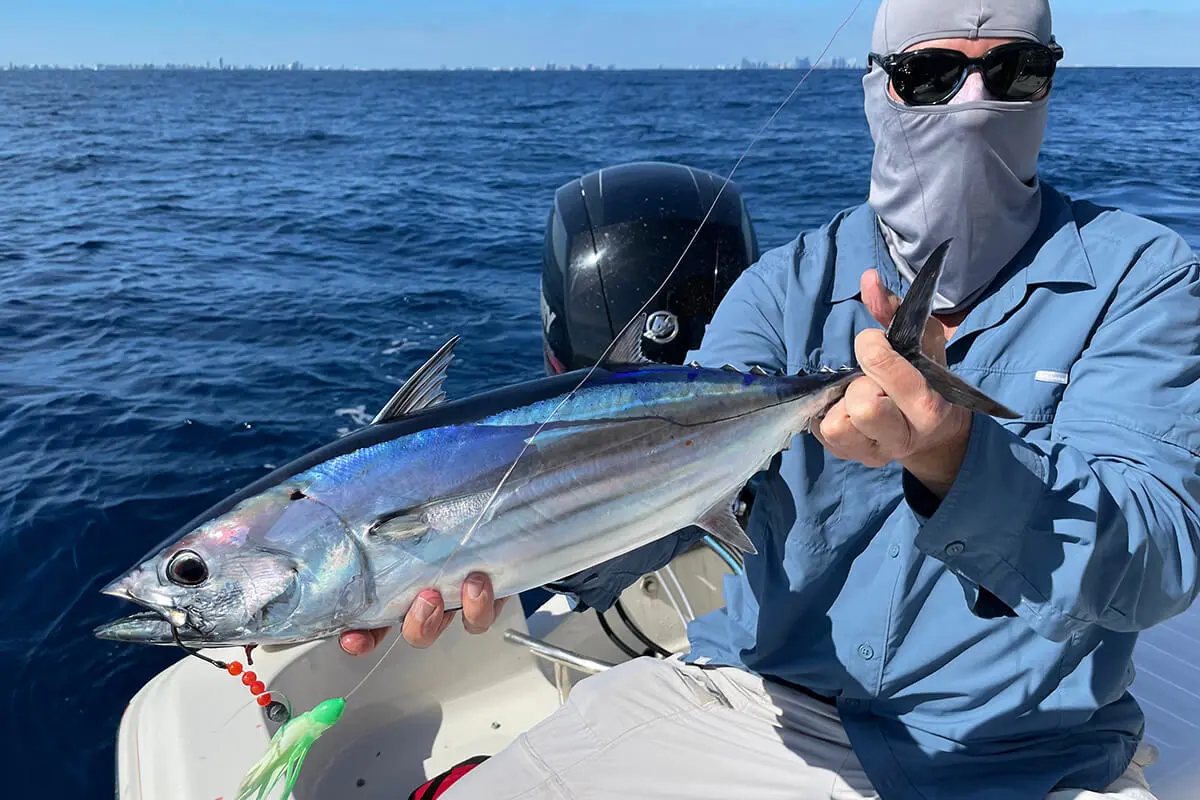Smoked skipjack tuna, also known as Katsuwonus pelamis, is a popular delicacy in many cuisines around the world. This medium-sized perciform fish is a member of the tuna family, Scombridae, and is highly sought after for its flavorful meat and versatility in cooking. In this article, we will explore the characteristics of skipjack tuna, its culinary uses, and the importance of sustainable fishing practices.

The Skipjack Tuna: A Cosmopolitan Pelagic Fish
The skipjack tuna is a streamlined and fast-swimming fish that is commonly found in tropical and warm-temperate waters. It forms large shoals of up to 50,000 fish and feeds on a diet of fish, crustaceans, cephalopods, and mollusks. This species is an important prey for sharks and large pelagic fishes, making it a popular choice for live bait in marlin fishing.
One distinctive feature of skipjack tuna is its lack of scales, except for the lateral line and the corselet. It can grow up to 1 meter in length and reach a mass of 8-10 kilograms. Determining the age of skipjack tuna is challenging, but estimates suggest a potential lifespan of 8-12 years.
The Importance of Sustainable Fishing
Due to its commercial value, skipjack tuna is heavily fished worldwide. It is usually caught using purse seine nets and is sold fresh, frozen, canned, dried, salted, and smoked. In 2018, approximately 2 million tonnes of skipjack tuna were landed, making it the third highest marine capture fishery.
However, the fishing methods used for skipjack tuna have raised concerns about sustainability and bycatch. Purse seine methods, in particular, are considered unsustainable due to the excessive capture of non-target species. To address these concerns, alternative fishing methods such as rod and reel or fishery options are being promoted as more ecologically preferable.
To ensure transparency for consumers, canned skipjack tuna is often labeled with the fishing method used to catch it. This allows individuals to make informed choices and support sustainable fishing practices.
Delicious Culinary Uses of Smoked Skipjack Tuna
Smoked skipjack tuna is highly valued in various cuisines for its rich and distinctive flavor. In Japanese cuisine, it is known as katsuo and is used in dishes like sushi, sashimi, and katsuo tataki (seared skipjack tuna). It is also a key ingredient in dashi, a fish stock commonly used in Japanese cooking.
Indonesian cuisine also embraces skipjack tuna, known as cakalang. One popular Indonesian dish is cakalang fufu, where the fish is cured and smoked after being clipped to a bamboo frame. This technique gives the skipjack tuna a unique taste and texture.
In Hawaii, skipjack tuna, or aku as it is known, is a staple in native cuisine. Hawaiians enjoy aku raw as sashimi or poke, or seared in the Japanese tataki style. The Pacific islands also appreciate skipjack tuna for its versatility in various dishes.
Choosing Sustainable and Healthy Seafood Options
When consuming skipjack tuna or any seafood, it is essential to prioritize sustainability and health. Skipjack tuna is considered to have moderate mercury contamination, and pregnant women are advised to limit their intake. Additionally, skipjack tuna livers have been found to contain tributyltin (TBT) contamination, a toxic compound introduced through antifouling paint on ship hulls.
By supporting sustainable fishing practices and choosing seafood labeled with the fishing method used, consumers can make a positive impact on marine ecosystems and ensure the availability of skipjack tuna for future generations.
Smoked skipjack tuna is a delicious and versatile seafood option that is loved by many cultures around the world. Its rich flavor and unique characteristics make it a popular choice in various culinary preparations. However, it is crucial to prioritize sustainable fishing practices and be mindful of potential contaminants when consuming skipjack tuna. By making informed choices, we can enjoy this delectable fish while preserving its abundance for the future.
If you want to know other articles similar to Delicious smoked skipjack tuna: a sustainable seafood option you can visit the Sustainable seafood category.

